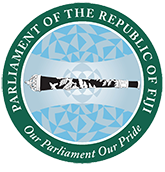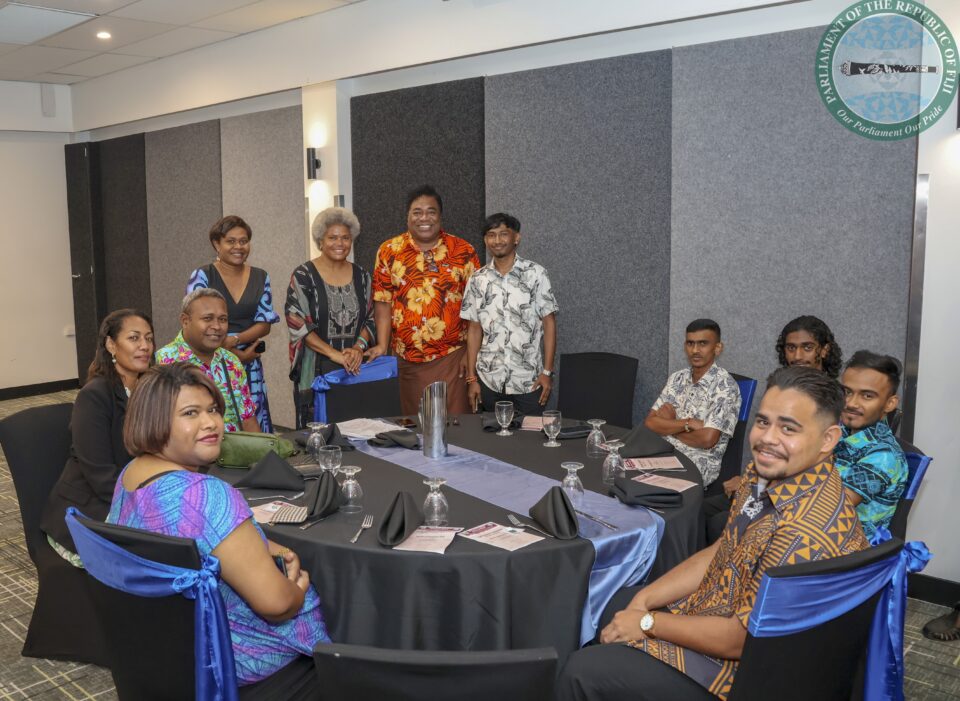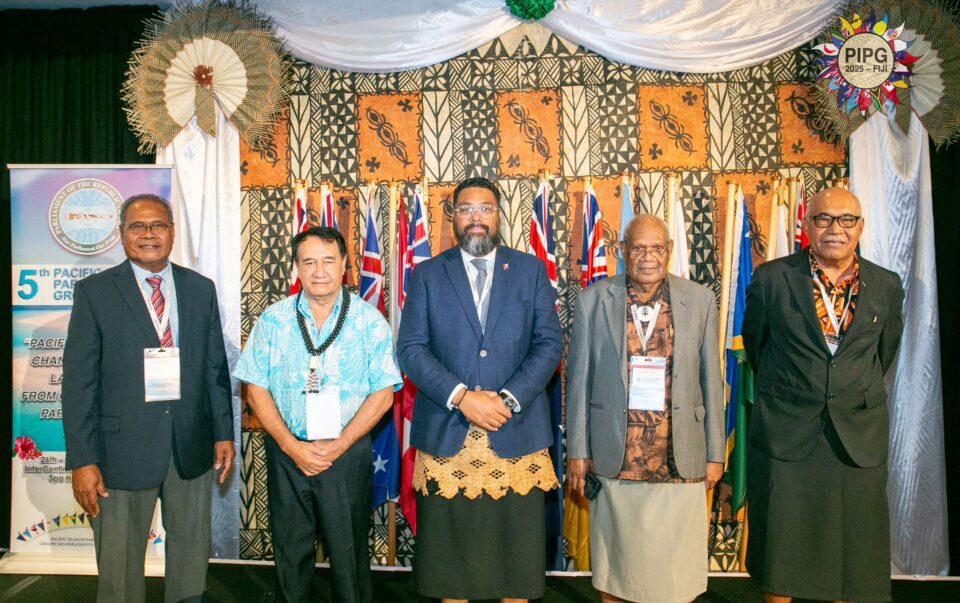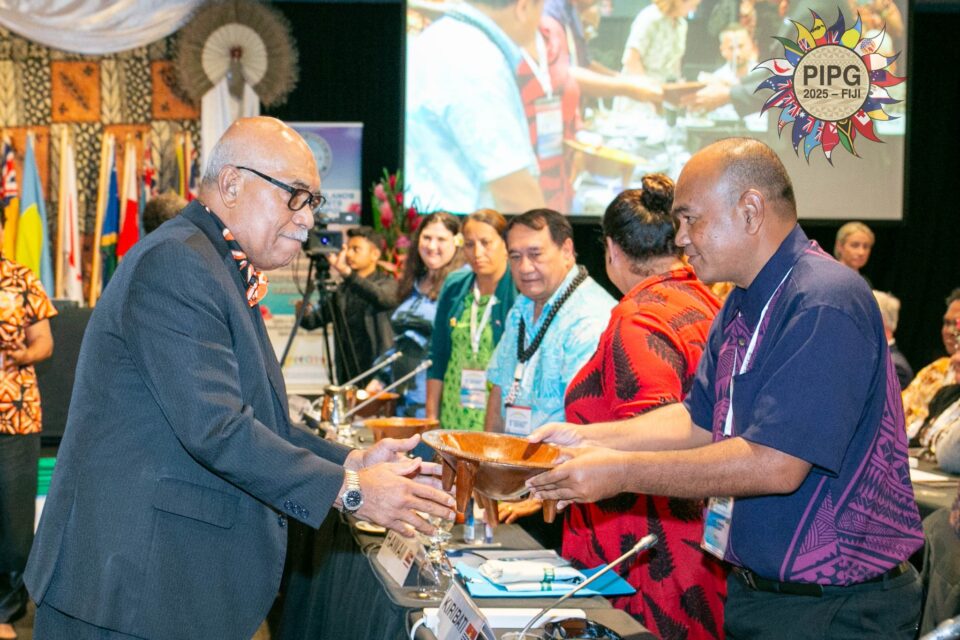Seminar On Climate Change To Support The Implementation Of The SDGs
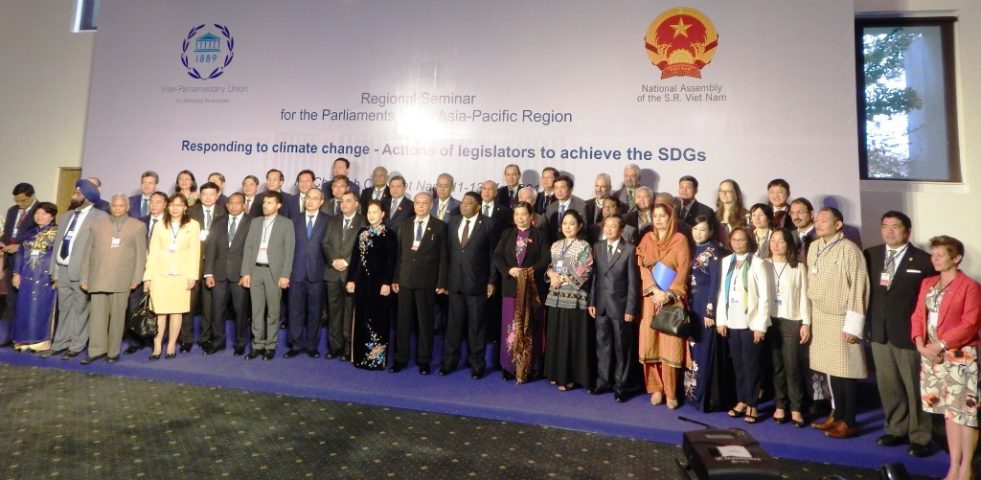
Fijian delegation at the climate change seminar in Vietnam.
In September 2015, the United Nations General Assembly adopted a set of Sustainable Development Goals (SDGs). Those goals will inform development agendas and policies over the next 15 years.
Realizing the SDGs will transform the world and pave the way for sustainable societies in which no one is left behind. IPU Member Parliaments have committed to doing what is necessary to carry forward this vision of transformation. Under the auspices of the IPU, parliaments have pledged to translate the SDGs into enforceable domestic law, hold governments accountable and align budgets with national sustainable development plans. In order to fulfil these commitments, Parliaments have affirmed the need to strengthen their decision-making processes.
Within the Asia-Pacific context, one of the world’s most disaster-prone regions, climate change represents one of the biggest threats to sustainable development. Its widespread and intense impacts,
particularly affect the poorest and the most vulnerable, especially women. It is crucial to promptly address these interlinked challenges in order to pave the way for sustainable development of the region. Parliaments have a leading role to play in this respect. Through their legislative, oversight, budget and representative functions, they can initiate and guarantee the implementation of national and regional sustainable development plans. The mobilization of resources by parliaments domestically as well as with development partners can undoubtedly advance the implementation and success of national and regional SDGs strategies.
The Seminar which is being held in Ho Chi Minh City (Viet Nam) from 11-13 May 2017aims to identify practical steps parliaments can take to support the implementation of the SDGs in their respective countries and in the region as a whole. Special emphasis is placed on sharing experience and increasing understanding about how parliaments in the Asia-Pacific region could institutionalize the global goals, promotes convergence and build coherence at the policy level. Through the prism of the climate change challenges facing the region, the seminar also focuses on the role of different stakeholders in the responses to climate change and on the requirement for national parliaments to take action in the form of legislation and to fulfil international commitments.
Gender equality, as well as health and resource mobilization are at the core of the discussions. The discussions also focus on how SDGs can help achieve gender equality, ensure good health for all and guarantee adequate pecuniary and non-pecuniary resources for the implementation of SDG strategies. A field trip to the Ben Tre province is also arranged so participants will have the opportunity to visit areas that are affected by climate change, including a mangrove forest, and to meet with officials of the Provincial People Committee.
The Seminar is intended for the parliaments of the following Asia-Pacific countries: Afghanistan, Australia, Bangladesh, Bhutan, Brunei, Cambodia, Canada, China, Democratic People’s Republic of Korea, Fiji, India, Indonesia, Iran (Islamic Republic of), Japan, Kiribati, Lao People’s Democratic Republic, Malaysia, Maldives, Marshall Island, Micronesia (Federated States of), Mongolia, Myanmar, Nauru, Nepal, New Zealand, Pakistan, Palau, Papua New Guinea, Philippines, Republic of Korea, Samoa, Singapore, Solomon Islands, Sri Lanka, Thailand, Timor-Leste, Tonga, Tuvalu, Vanuatu and Viet Nam. The Parliaments of Denmark, Sweden, the United Kingdom and the Netherland were also invited to attend as guests.
The Fijian Parliament has also sent a delegation made up of Members of Parliament and Parliamentary staff to attend this crucial seminar.

